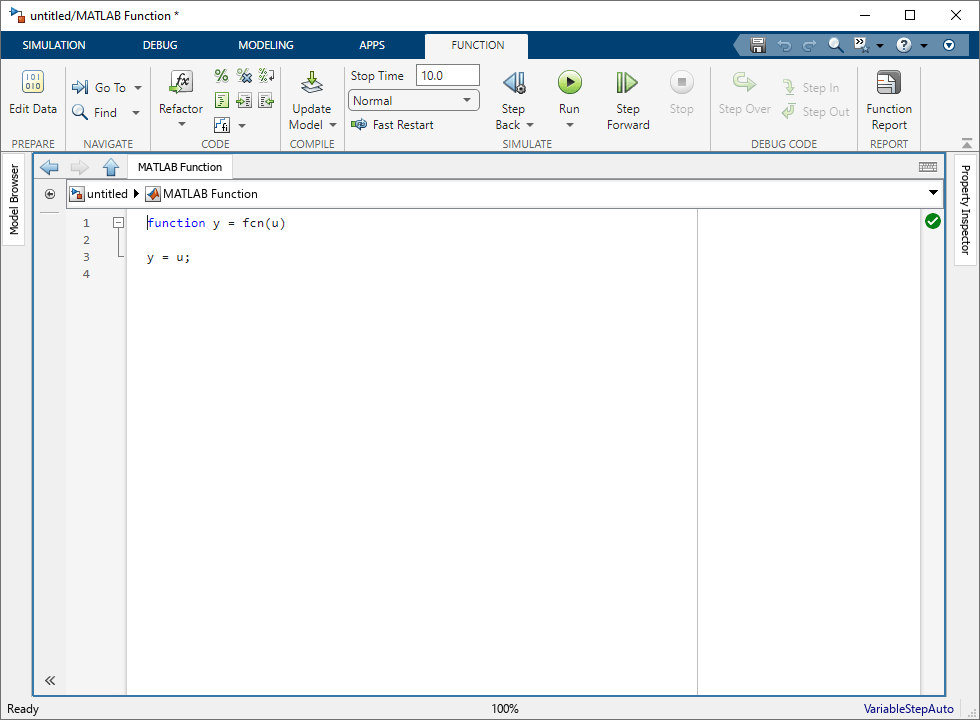Antwort Can you declare two variables at once? Weitere Antworten – How do you declare two variables at once
You can declare multiple variables in a single line using the var, let, or const keyword followed by a comma-separated list of variable names.Declaring each variable on a separate line is the preferred method. However, multiple variables on one line are acceptable when they are trivial temporary variables such as array indices.In Python, you can assign multiple variables at the same time. This is often useful when extracting multiple values from a data structure, like a list or dictionary.
How to declare multiple variables in C : Example – Declaring multiple variables in a statement
If your variables are the same type, you can define multiple variables in one declaration statement. For example: int age, reach; In this example, two variables called age and reach would be defined as integers.
What happens if we declare a variable twice
What happens if it is declared twice Both let and const variables will throw an error if you try to declare a variable twice in global scope whereas you can declare the same variable any number of times using var.
How do you declare two variables with the same value : If two variables have the same value, such as int a=1; int b=1; , most languages will create two different objects. But some languages create only one object in such case. Prints True, i.e., both a and b refer to the same object. This will work only on small values, e.g., it won't work with 500.
A variable in a closed scope can have the same name as a variable in another scope, because scopes create a local naming environment. Variables declared outside at global scope are visible inside of functions and loops, etc. but variables declared inside functions, and loops are not.
Python assigns values from right to left. When assigning multiple variables in a single line, different variable names are provided to the left of the assignment operator separated by a comma. The same goes for their respective values except they should be to the right of the assignment operator.
How do you put two variables together in Python
To find the sum of two variables in Python, we can use the addition operator (+) to add the values of the variables together. For example, if we have two variables, x and y, we can find their sum by writing x + y.Note that we can't make two declarations using the same variable name where it doesn't really make sense: for example, we can't declare the same variable twice as a local variable.No other variable should share the name of a global variable if the other variable is in a subscope of the global variable. A block should not declare a variable with the same name as a variable declared in any block that contains it.
A variable should only be declared once. If you use the keyword "var" on the same variable a second time, it is not proper programming. But duplicate variable declarations using "var" will not trigger an error, so you can "get away with it". However, if you use the newer "let" keyword instead, it will cause an error.
Can we declare two variables in a variable with the same name : In general, when a language requires you to declare your variables, you can't have two with the same name in the same scope. The one in the inner scope shadows the one in the outer scope. However, in a lot of languages, that also means that you can declare two variables with the same name in two nested scopes.
What are 2 rules for naming variables : A variable name must start with a letter or an underscore character (_) A variable name cannot start with a digit. A variable name can only contain alpha-numeric characters and underscores ( a-z, A-Z , 0-9 , and _ )
What does := do in Python
For Python 3.8, the biggest change is the addition of assignment expressions. Specifically, the := operator gives you a new syntax for assigning variables in the middle of expressions.
In Python, you can add multiple items to a list using the `extend()` method. The `extend()` method takes an iterable object (e.g. list, tuple, set) as an argument and adds each element of the iterable to the end of the list.Generally, if two declarations create local variables with the same name that are in the same frame on the run-time stack, instance variables of the same name which are in the same object, or class variables of the same name which are in the same class definition, then the compiler will give us an error.
What are the 5 rules to declare a variable name : Variable Names
- A variable name must start with a letter or the underscore character.
- A variable name cannot start with a number.
- A variable name can only contain alpha-numeric characters and underscores (A-z, 0-9, and _ )
- Variable names are case-sensitive (age, Age and AGE are three different variables)







